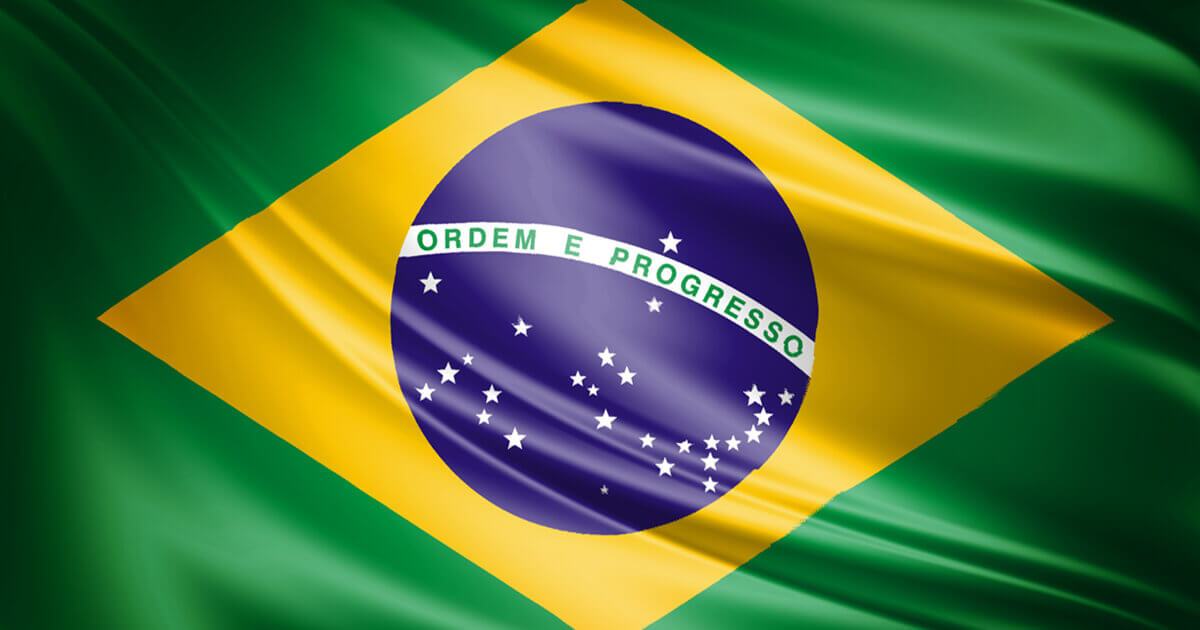What Impact Will the Election of Jair Bolsonaro Have on Effective Animal Advocacy in Brazil?

Jair Bolsonaro was elected to serve as the next President of Brazil on October 28, 2018. The far-right politician is a former army captain who has praised the military dictatorship which governed Brazil from 1964 to 1985.1 He served 27 years in Brazil’s congress but was mostly a marginal political figure, only occasionally making headlines with his extremist views. He started his term as President on January 1, 2019.
The 2018 Presidential election was one of the most divisive in the country’s history.2 Initially a fringe candidate for the presidency, Bolsonaro’s promises to restore security to Brazil—a country with endemic violent crime and widespread corruption—made him a popular choice with voters looking for change.3 However, some of his policy positions have stirred controversy. The conservative newspaper Estado de São Paulo reported that “voters have chosen Bolsonaro without having the slightest idea of what he will do when he sits down in the Presidential chair.” The newspaper also described his rhetoric as “hateful” and “empty.”4
Bolsonaro is supported by the powerful agribusiness lobby.5 He has previously stated that he planned to merge the Ministry of Agriculture with the Ministry of the Environment—a move which advocates feared would undermine the Ministry of the Environment’s control of the commercial sector. However, reports suggest that this proposal has now been discarded.6, 7 An anonymous staff member from an animal advocacy group in Brazil told us that Bolsonaro also intends to expand agribusiness in the Amazon region.8, 9, 10 His choice of cabinet members reflects this intention; for example, Bolsonaro has chosen Tereza Cristina to serve as the new Agriculture Minister. Cristina is the former President of the Parliamentary Agriculture Front, a caucus in Brazil’s congress which supports the expansion of large-scale farmers and ranches.11 In addition, the new Environment Minister, Ricardo Salles, was recently found to have altered environmental management plans for a protected area in order to benefit business.12 In addition to choosing pro-agriculture cabinet members, Bolsonaro has also issued a provisional measure which takes the responsibility for indigenous land demarcation away from the government’s Indigenous Affairs Agency and assigns it to the Ministry of Agriculture.13
Bolsonaro has said that he wants to end all activism and has insinuated that anyone who opposes him must be a criminal.14 The right to protest in Brazil is already under threat due to proposed changes to anti-terrorist laws15—the previous government put draft legislation before Brazil’s National Congress which aims to expand the definitions of “criminal organizations” and “terrorist acts” such that political protests and demonstrations can be treated as acts of terrorism. In addition, an anonymous staff member from an animal advocacy group in Brazil informed us of an upcoming vote which will determine whether it will be required to seek permission from the government before holding a protest.16 If introduced, the new legislation will allow Bolsonaro’s government to criminalize activist groups and individuals that organize demonstrations opposing their agenda. Although the legislation is not specifically aimed at animal advocacy groups, Bolsonaro’s close relationship with agribusiness raises concerns that the law could be used to prevent organizations from protesting against animal cruelty.17
Before leaving office, former President Michel Temer also issued a decree to establish an “Intelligence Task Force” (ITF). Comprised mainly of representatives of the armed forces, the ITF’s stated goal is to combat criminal organizations. However, some fear that it could be used to oppress social movements and activists.18 Following suit, on his first day in office Bolsonaro instructed the Government Secretary to closely monitor the work of nonprofits and international organizations in Brazil.19
Animal advocates in Brazil are deeply concerned about Bolsonaro’s election—specifically, they fear that the President’s plans will significantly hinder the progress they’ve been making for farmed animal welfare. Given the high degree of uncertainty surrounding Bolsonaro’s proposed changes, advocacy groups are closely monitoring the situation in order to determine how to adapt to the new political and legislative developments.20
For readers who would like more information, The Guardian has been reporting extensively on the election. Updated information can also be found on BBC News and The New York Times. For sources from Brazil, readers can visit Folha de São Paulo for publications in English and in Portuguese and El País for news in English, Portuguese, and Spanish.
See The New York Times article “Brazil flirts with a return to the dark days” (August 24, 2018).
See The Guardian article “How dangerous is Jair Bolsonaro, Brazil’s new President?” (November 1, 2018).
See the Vox article “Corruption, fake news, and WhatsApp: how Bolsonaro won Brazil” (October 29, 2018).
See The Guardian article “‘We will not be silenced’: Bolsonaro opponents pledge widespread protests” (October 29, 2018).
See the Japan Times article “Environment activists alarmed as Brazil’s Jair Bolsonaro rolls out hard-line agenda” (October 31, 2018).
See the BBC News article “Brazil: Bolsonaro plans threaten Amazon, say experts” (October 31, 2018).
See the Folha de São Paulo article “Bolsonaro retreats from merging environment with agriculture” (November 2, 2018).
We are unable to publish the name of this staff member or the organization they work for.
As stated in this article from The New York Times, “Brazil has elected a new far-right President, Jair Bolsonaro, who favors abolishing protected indigenous lands. He has promised to scale back enforcement of environmental laws, calling them an impediment to economic growth, and has made his intentions for the Amazon clear. ‘Where there is indigenous land,’ he said last year, ‘there is wealth underneath it.’”
See The Guardian article “Fears for Amazon as Bolsonaro plans to merge environment and agriculture ministries” (November 1, 2018).
See the Mongabay article “Bolsonaro hands over indigenous land demarcation to agriculture ministry” (January 2, 2019).
See The Guardian article “Brazil environmental minister still likely to serve Bolsonaro despite misconduct” (December 20, 2018).
See the Mongabay article “Bolsonaro hands over indigenous land demarcation to agriculture ministry” (January 2, 2019).
See The New York Times article “Brazil flirts with a return to the dark days” (August 24, 2018).
Private communication with a staff member at an animal advocacy organization operating in Brazil. We are unable to publish the name of this staff member or the organization they work for.
We are unable to publish the name of this staff member or the organization they work for.
Private communication with a staff member at an animal advocacy organization operating in Brazil. We are unable to publish the name of this staff member or the organization they work for.
See the Brazil Solidarity Initiative article “Bolsonaro threatens to criminalise social, trade unions and religious movements in Brazil” (November 20, 2018).
See the Reuters article “Bolsonaro Presidential decree grants sweeping powers over NGOs in Brazil” (January 2, 2019).
Private communication with a staff member at an animal advocacy organization operating in Brazil. We are unable to publish the name of this staff member or the organization they work for.
About Victoria Schindel
Victoria joined ACE as a research intern from September 2018 through early 2019. She holds a B.S. in Biological Sciences and an M.S. in Green Economics. Her master’s dissertation examined the impact of environmental attitudes on meat consumption behavior. She has a particular interest in dietary change and farmed animal welfare advocacy.
ACE is dedicated to creating a world where all animals can thrive, regardless of their species. We take the guesswork out of supporting animal advocacy by directing funds toward the most impactful charities and programs, based on evidence and research.
Join our newsletter
Leave a ReplyCancel reply
Comments



There was also an interesting discussion with Sabrina Fernandes. Though as mentioned in the podcast there is contestation between “strategising” veg advocacy such as through organisations ProVeg and CEVA, or how we would work in relation to broader social justice movements or in relation to political shifts. Most of the emphasis with effective animal advocacy has centred on “pragmatism” rather than asking questions of power, either within the animal movement (particularly in regard to accumulation by certain organisations or individuals) or external to it.
In my view “pragmatism” would likely say shift further to de-politicise or “mainstream” advocacy, which would essentially utilise patriarchy (to a greater degree than it already does) as a central prop for effective individualistic consumer advocacy.
https://animalliberationcurrents.com/what-next-for-brazil/?fbclid=IwAR1AQNzOuDYFJZejP3_jxzmYKFLJqHbGRof85V8Bn3VxjNcx67sg0D53Ulk